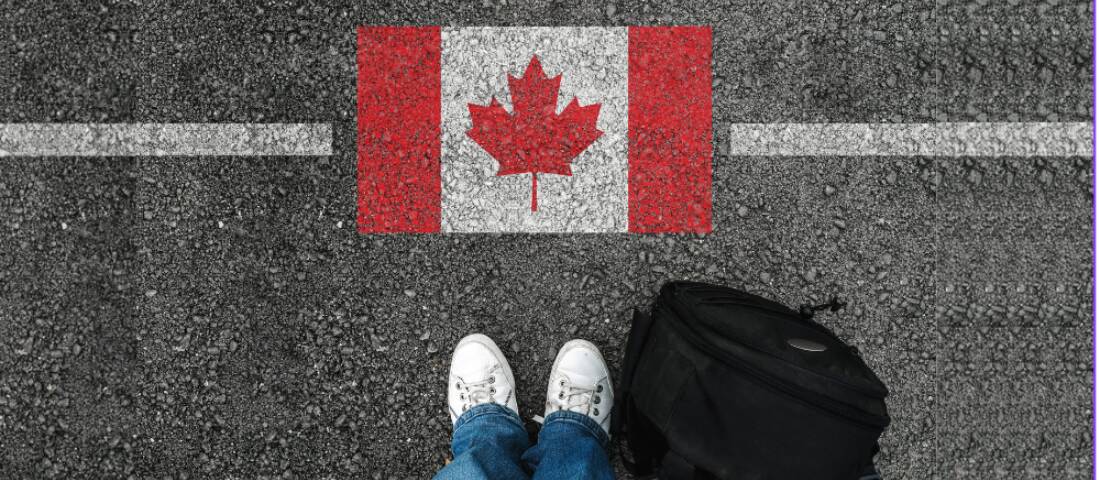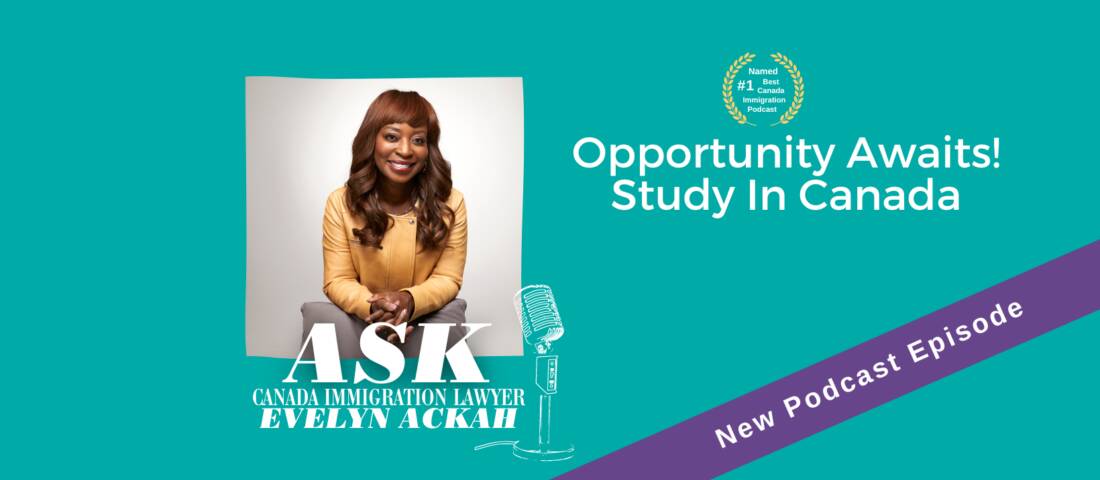Effective October 20, 2020, some designated learning institutions (DLIs) are able to reopen to international students who aren’t currently in Canada and who:
- have, or have been approved for, a study permit
- are travelling to Canada for a non-discretionary or non-optional purpose
Canada Immigration Lawyer recently spoke to the Ryersonian, the Ryerson School of Journalism, about why international students located abroad remain ineligible to return to Ryerson:
Airlines and government officials are incredibly wary about letting immigrants in due to COVID-19, said immigration lawyer Evelyn Ackah. Ackah has seen cases where international students could not board a plane to come to Canada even with an approved study permit. Students can either withdraw their enrolment, defer until the next academic year or wait until Ryerson creates an approved COVID-19 strategy to get on the DLI list.
“First, see if you can get some of your money back or as much of it as you can and wait until you can come, especially for that experience to come to school in Canada. (International students) come not just for learning — it’s also the experience of a different culture, but there’s no recourse in this from the students’ perspective, unfortunately,” said Ackah.
Students who are thinking of travelling back to their home countries this winter break are also not guaranteed entry back into Canada. International students who are located in Canada should stay in Canada, Ackah said. She recognized how challenging it is for international students who are not able to see their families during the winter break, but said these measures are in place to protect their health and wellbeing.
“This is not the year (international students) should be travelling. Stay here, stay safe and stay healthy,” said Ackah.
What Is A DLI? Designated Learning Institution Travel Exemptions
Canada's borders remain closed to all but essential travellers with some exemptions through November 21, 2020. Learning institutions whose COVID-19 readiness plans have been approved by their provincial or territorial government are able to welcome more international students back to their schools. Updated temporary travel restrictions took effect on October 20, allowing international students to enter Canada if their designated learning institution (DLI) has an approved COVID-19 readiness plan in place.
The list of DLIs with an approved COVID-19 readiness plan in place is posted on IRCC’s web page for international students affected by COVID-19 restrictions and updated regularly as provinces and territories identify additional schools. This change to travel restrictions affects all international students, regardless of where they are travelling from or when their study permit was approved.
International students should not make any travel plans to enter Canada until they have met all requirements and received all necessary authorizations. Asymptomatic (no symptoms) international students who have the appropriate documents to enter Canada and whose DLI is on the list of institutions with approved COVID-19 readiness plans in place will be considered to be non-discretionary and non-optional, unless there is evidence that they are clearly coming to Canada for a discretionary or optional purpose, such as tourism.
Immediate family members may be able to accompany an international student to Canada if their reason for travel is non-optional or non-discretionary, such as getting established in Canada in support of the principal applicant’s study program. This could include a spouse or common-law partner, a dependant, or in the case of a minor child who will be studying in Canada, a parent or legal guardian.
International students and accompanying family members will be subject to all public health measures as are all travellers to Canada, including a mandatory 14-day quarantine period upon arrival in Canada.
International Student Quarantine Requirement
When you travel to Canada for study or any other reason you are required to quarantine for 14 days and to present a quarantine plan to the CBSA Officer at your port-of-entry (i.e. airport or land border). The quarantine plan must include mandatory information:
- The address of where you will quarantine
- How you will travel to the quarantine address from the port-of-entry
- Your arrangements for getting grocery, essential services and medical care
TRAVEL EXEMPTIONS AND RESTRICTIONS FOR INTERNATIONAL STUDENTS
DLIs with a COVID-19 readiness plan approved by their province or territory are able to reopen to international students who are currently outside Canada.
See the list of DLIs with approved COVID-19 readiness plans.
If you plan to come to Canada as an international student after October 20, 2020:
- Your DLI must be on the list of DLIs with approved COVID-19 readiness plans before you travel to Canada.
- You must have a valid study permit or have been approved for a study permit.
This applies to all international students, whether you’re travelling from the United States or from any other country.
This change doesn’t affect study permit holders already in Canada.
If you’re already in Canada, you can continue studying at any DLI. If you leave Canada, you may not be able to return if your DLI doesn’t have a COVID-19 readiness plan approved by the province or territory in which you live.
WHEN YOU TRAVEL TO CANADA
Make sure your school is on the list of DLIs with COVID-19 readiness plans approved by their province or territory.
When the border services officer greets you, they look at several factors, including
- your reason for travelling to Canada
- your ability to complete a 14-day quarantine period as soon as you arrive at your final destination
- if you either
- have time to complete your quarantine before you physically attend classes, or
- can study online during your quarantine
You must bring
- a valid study permit or a port of entry letter of introduction that shows you were approved for a study permit
- a valid letter of acceptance from a DLI with a COVID-19 readiness plan approved by its province or territory
- proof that you have enough money to support yourself and any family members who come with you to Canada
A border services officer will make the final decision on whether you’re eligible to enter Canada when you arrive.
IF IMMEDIATE FAMILY MEMBERS WANT TO BE WITH YOU IN CANADA
Your immediate family members may be able to come with you to Canada.
- If they travel with you
They don’t need a written authorization from IRCC to travel with you. However, they must show that their reasons for travel are non-discretionary (non-optional). For example, they’ll help you get established and support you in Canada.
- If your immediate family member will study or work in Canada
You must submit all of your applications together when you apply online. - If they won’t study or work
They may still need an electronic travel authorization (eTA) or a visitor visa to travel to Canada.
If they need a visitor visa, you should include their application when you apply online for your study permit.
If they need an eTA, they must apply for one separately. Make sure they follow the special instructions on how to apply for an eTA at this time.
- If they join you later
If you’re already in Canada or will travel to Canada by yourself first and your family will join you later, what they need to travel to Canada depends on where they’re travelling from. Find out what they need to join you in Canada. They may also need an eTA or a visitor visa to travel to Canada.
STUDYING AT AN APPROVED DLI
You must be studying at one of the approved DLIs to be able to travel to Canada. IRCC will only add DLIs if its provincial or territorial government has approved their COVID-19 readiness plan.
If your DLI isn’t included, you can’t travel to Canada to study at this time. If you try to travel to Canada when your DLI isn’t included, you may not be allowed to board your flight or you may be turned away at the port of entry.
Learn More:
- New COVID Non-Discretionary Travel and Quarantine Exemptions
- PGWP: Post-Graduation Work Permit Program Update
- NEW Temporary Updates to Canada International Student Requirements
CONTACT ACKAH LAW BEFORE YOU FLY
Don't attempt to cross the border into Canada without making sure your paperwork is in order. COVID's impact on Canada immigration has affected individuals, families, big corporations and small business owners, and there can be confusion at the border or when trying to board a flight to Canada. An experienced immigration professional can help qualified travelers cross the border into Canada, and help prepare your immigration application.
For more information and solutions for crossing borders seamlessly to live and work in Canada or the United States, contact Ackah Business Immigration Law today at (403) 452-9515 Ext. 100 or 1-800-932-1190 or email us directly.








